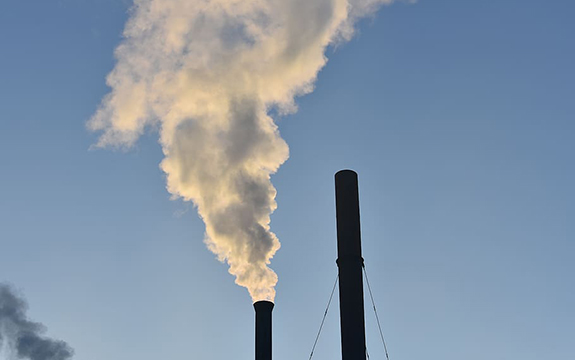Why government needs to take lead role in decarbonisation

In Summary
- Opinion piece by Richard Bolt, Adjunct Professor of Energy Transformation at Swinburne University of Technology, and a Principal of the Nous Group, originally published in The Australian Financial Review
Despite what Barnaby Joyce and his supporters in the National Party might believe, concern about climate change has reached new heights following Australia’s shocking bushfires. The national debate is moving from whether there is a problem to what more we should do about it.
If serious action is not taken, my new granddaughter will enter the 22nd century having lived in a seriously changing climate for decades. Her energy security may also be compromised because the world will have gambled on finding new fossil fuel resources and extraction technologies at an unprecedented rate over the intervening decades.
The good news is that plausible paths to zero carbon emissions are emerging.
Electricity supply will move to renewables, along with nuclear power in some countries. Electricity will increasingly power city cars and space heating. Hydrogen will fuel heavy and long-distance transport, industries such as steelmaking, and the stabilisation of power grids. Energy use will become more efficient.
However, it’s easier to guess where we’ll finish than to work out how we’ll get there. Australia needs a decarbonisation strategy that chooses our next steps based on realistic options and sound assumptions.
Our strategy should recognise that decarbonisation will be the first energy transformation driven by public good.
Previous transformations (coal-fired steam, internal combustion engines, electrification) were aimed directly at growing wealth and improving living standards.
This one will provide services we already enjoy, often at higher cost and with most benefits going to our descendants.
Our strategy should recognise that decarbonisation needs a better informed, less polarised public discussion.
This means we cannot rely on markets alone to drive decarbonisation. The private sector has a crucial role but will need regulations, subsidies and programs to deliver new energy sources and uses at scale.
An early step should be legislation to make governments’ decarbonisation targets core goals for our energy agencies, alongside their price and reliability obligations.
Agencies should also be tasked to support governments’ policies for vulnerable regions and consumers where doing so is compatible with their broader price, reliability and decarbonisation goals. They should adjust their mindsets and streamline their processes to guide an unprecedented investment program.
System planning by the Australian Energy Market Operator should be underpinned by stronger powers to coordinate and selectively underwrite additions and closures of power stations, storages and transmission links.
Decarbonisation creates complexities and risks that are hard for companies to manage, so governments and agencies will have to share them. Use of these powers should be made accountable by rules, consultation, and approval by COAG ministers.
A large rationalisation of agencies with energy roles is also needed because there are too many to provide coherent and timely direction, even if their mandates are modernised. The six agencies with the most significant roles could be reduced to two.
Tech challenges
Global decarbonisation will require large global movements of technology, capital and fuel, particularly hydrogen given its portability and flexible uses. Australia’s unavoidable reliance on imported technology can be offset by making and using hydrogen here, and exporting it to high-population, low-resource nations, which otherwise can’t decarbonise without a large loss of living standards.
We should avoid a solely national approach to decarbonising trade-exposed industries. International agreement to coordinate national policies (such as mandates for hydrogen vehicles or zero-carbon steel) may be needed where unilateral action would create disadvantage.
This is one reason why a general carbon price is no longer advisable, at least for now. Keyhole policy surgery – targeted to specific energy sources and uses – will reduce emissions with more certainty, less collateral damage and better change management.
Our strategy must accept that cleaner uses of fossil fuels in the long transition to renewables will accelerate decarbonisation, not slow it down.
For example, it will be expensive and insecure to place too much reliance on pumped hydro and battery storage as the renewables share grows towards 100 per cent, because they can only be topped up using the same variable supply they are backing up.
Extended periods of low renewable output could create a supply crisis from the dependent failure of source and storage.
An interim solution is more gas-fired power capacity as a last-resort backup that is independent of the weather, allowing coal stations to close earlier while keeping the lights on. Once we have a secure hydrogen supply, including from a growing renewable surplus, it can replace gas in this role.
Coal and gas with carbon capture and storage (CCS) should help kick-start hydrogen production at scale while we build that renewable surplus and electrolysis costs are reduced.
CCS hubs underwritten by fossil fuel uses can also store carbon dioxide from activities such as cement-making and biomass gasification ("negative emissions").
Finally, our strategy should recognise that decarbonisation needs a better informed, less polarised public discussion.
The challenge is overstated by opponents and understated by advocates, leaving households and businesses with conflicting advice on our energy options and ill-prepared for the changes ahead.
Yet governments risk a voter backlash if they try to lead discussion of major long-term change.
This may be a role for our research community in partnership with public media, and in dialogue with the public, governments and business. Indeed, a national research strategy is essential and should address social and technology change together.
We need urgent action to decarbonise, but we can’t maintain a crisis mentality over the decades that it will take.
We should start by developing an evidence-based strategy, legislating decarbonisation as core business for our energy sector, and developing tailored policies to increase momentum. And our debate should move past clashes of ideology to a calmer consideration of facts and options.

